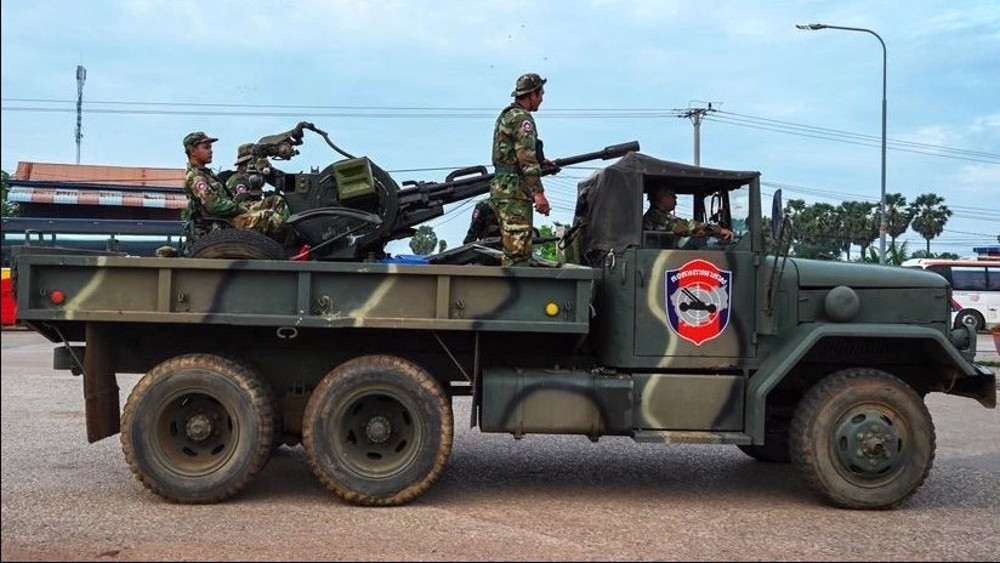Bahrain must be put under real pressure to undertake reforms: Activist
Press TV has interviewed Saeed Shehabi, a member of the Bahrain Freedom Movement in London, to discuss the ongoing protests in Bahrain against the Al Khalifah regime’s decision to strip Bahraini Shia cleric Sheikh Isa Qassim of his citizenship.
A rough transcription of the interview appears below.
Press TV: There have been persistent sit-ins and demonstrations by the Bahrainis against the crackdown on prominent cleric Ayatollah Isa Qassim. Talk to us more about the situation on the ground there in Bahrain.
Shehabi: Number one, the demonstrations have never subsided over the past five years, not a single day had passed without demonstrations in various parts of the country. Number two, the demonstrations have continued and became more persistent and more energetic following the prosecution by the Al Khalifah dictatorship of Ayatollah Sheikh Isa Qassim and of course as we know there are thousands who are gathered around his home in order to protect him, defend him and prevent the regime from doing any harm to him.
Number three, the town of Diraz where the sheikh is residing has become a no-go area because the regime has imposed a blockade similar to that being imposed by the Zionists, by the Israelis on Gaza but unfortunately nobody is talking about the blockade of Diraz and the harassment of its people on daily basis. Nobody can go inside, the families have been disunited because there are girls who are married outside, and who cannot visit their mothers and their homes in Diraz. So there is a real human tragedy in Bahrain being committed by this dictatorship.
Press TV: As you mentioned, the demonstrations have been taking place persistently for the past five years. That is exactly the opposite of what can be said of the international response and condemnations to the actions of the Al Khalifah regime. Recently we have been hearing some calls of condemnation coming from certain Western countries but these calls and condemnations have turned out to be just mere platitude as no action is being taken with regards to the situation in Bahrain.
Shehabi: Unfortunately there is a policy of trying to please these dictators. Yes, when the situation becomes very tense, when these dictators become very vicious and their crimes become so apparent and so flagrant, then these countries would say some words as the Americans have said last week or the week before but after those words nothing is done.
There is no real pressure on the Saudis or the Al Khalifah to stop harassing people and to undergo and undertake political reforms. Nothing has happened in Saudi Arabia for decades, no political reform, no political movement, no political openness, nothing has happened in Bahrain. Over the past five and half years the people have been demonstrating calling for reforms. The problem and the crisis in Bahrain today is a crisis of legitimacy, a crisis of political reform, that there is dictatorship, there is absolute tribal regime that accepts no modern values. Now these Western allies have failed to put any kind of pressure on their allies to undertake these political reforms.
So the situation is and the result is that they are in reality supporting violence, supporting extremism. If you do not support the moderates, the peace-loving people, the peaceful political process in Bahrain, then the alternative is to push those moderates into the corner and tell some of them may become extremists and that is not good, neither for the region nor for the international peace and security.
So both America and Britain need to relook, revisit their policies in the Middle East and accept and agree on a program of political reform and openness.
VIDEO | Germany, not just merely an economic recession
Discover Iran: Hormozgan, home to the last lenj boatbuilders of Persian Gulf
VIDEO | Condition of Gaza hospitals at the beginning of phase two recovery
VIDEO | Tehran metro station vandalized in attack by foreign-backed terrorists
VIDEO | Angry Iraqis set fire to Trump image, US flag
'It's simple — Trump's failing': Netizens rip into US warmongering against Iran
ICE shooting of protester in Minnesota
UN envoy: US responsible for ‘unpredictable consequences’ of aggression on Iran














 This makes it easy to access the Press TV website
This makes it easy to access the Press TV website